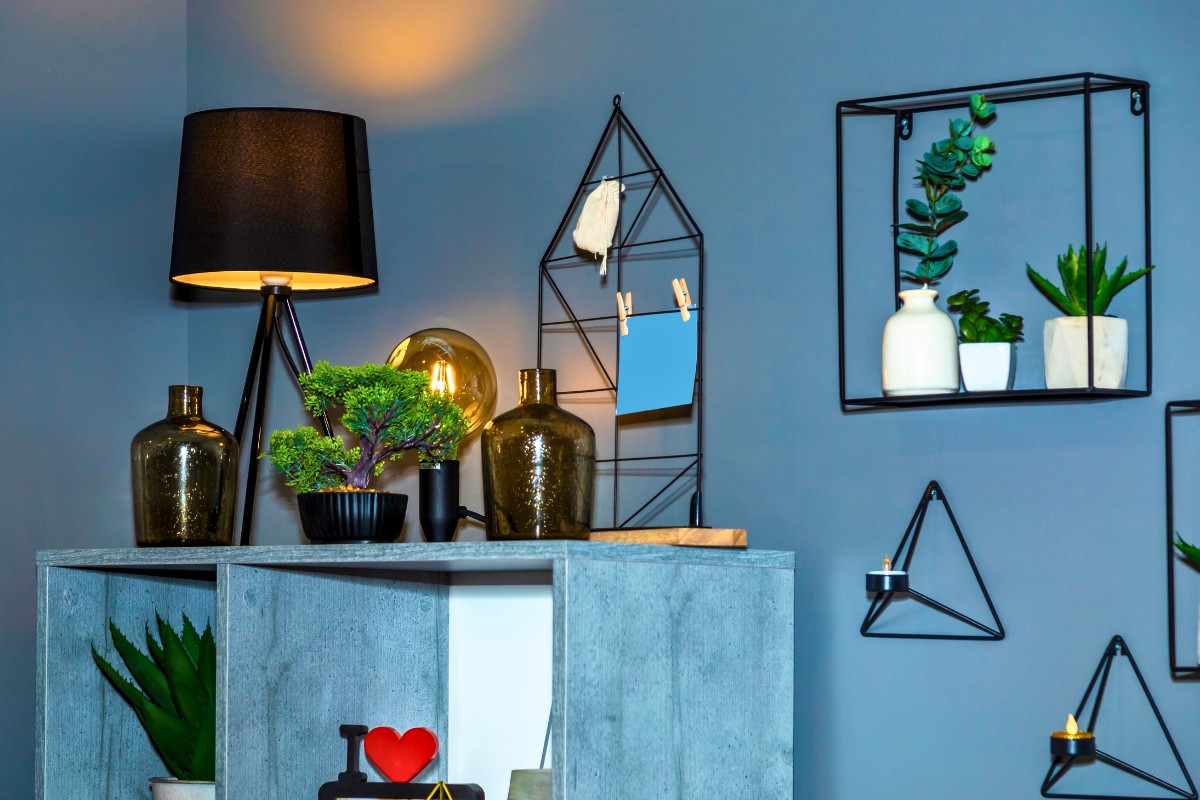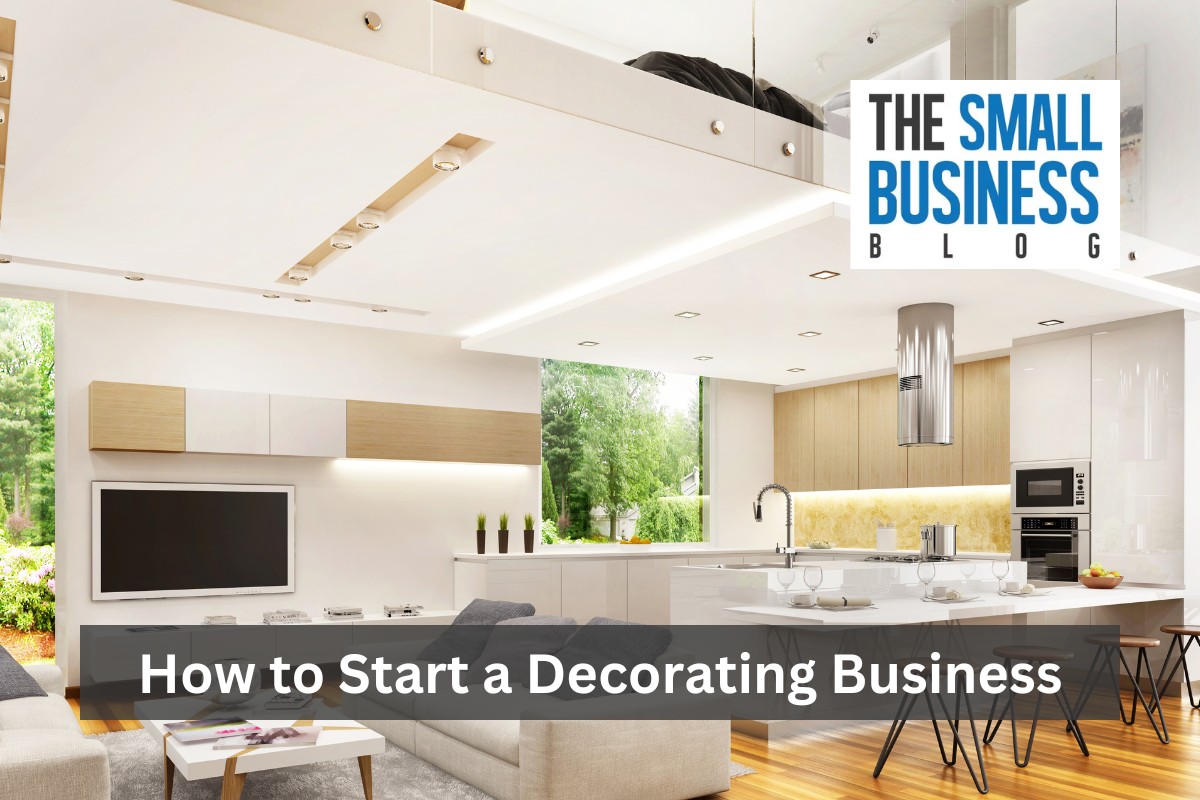Starting a decorating business can be a fulfilling and lucrative venture for individuals with a passion for interior design and a keen eye for aesthetics.
In this comprehensive guide, we will teach you how to start a decorating business, essentially exploring the intricacies of establishing and growing a successful decorating business.
From the initial steps of planning and setting up your business to tips for expanding your client base and ensuring long-term success, we’ve got you covered.
Post Contents
- 1 How to Start a Decorating Business
- 2 Essential Resources for Your Event Decoration Business
- 3 Frequently Asked Questions
- 4 Conclusion
How to Start a Decorating Business
1. Finding Your Niche in the Decorating World

The first step in launching a successful decorating business is to find your niche.
Identifying a specific area of expertise within the vast world of interior design and decoration.
Your niche will be your unique selling point, setting you apart from competitors and attracting your target audience.
Here are some popular decorating niches to consider:
1. Residential Interior Design
This is one of the most common niches, focusing on decorating homes to create functional and aesthetically pleasing living spaces.
It involves working closely with homeowners to understand their preferences and needs.
2. Commercial Interior Design
In this niche, you’ll decorate commercial spaces like offices, restaurants, and retail stores.
It requires a keen understanding of branding and creating environments that enhance business operations and customer experiences.
3. Home Staging
Home staging involves preparing homes for sale by enhancing their visual appeal to potential buyers.
It’s a niche with a high demand in the real estate market.
2. Create a Business Plan
A well-structured business plan is the compass for your decorating business, providing you with a clear direction and a roadmap for success.
It’s the foundation upon which you build your entrepreneurial journey.
1. Define Your Business Goals
Begin by outlining your business objectives.
What do you want to achieve with your decorating business, both in the short and long term?
Perhaps you aspire to become the go-to decorator for upscale residences in your area or wish to expand your services regionally.
These goals will guide your decisions and actions.
2. Identify Your Target Market
Who are your potential clients?
Are you catering to homeowners, businesses, or a specific niche, like eco-conscious clients?
Identify their needs, preferences, and pain points.
This knowledge will help you tailor your services and marketing efforts effectively.
3. Budgeting and Financial Projections
The financial aspect of your business plan is critical.
Detail your startup costs, including licensing, equipment, office space, and marketing expenses.
Create a budget that outlines your projected income and expenses, allowing you to manage your finances efficiently.
This financial roadmap will also help you secure any necessary funding.
4. Business Structure and Legal Considerations
Determine your business structure, whether a sole proprietorship, partnership, limited liability company (LLC) or corporation.
Each structure has its implications for taxes, liability, and management.
Comply with any legal requirements in your jurisdiction, such as obtaining necessary permits or licenses.
3. Build Your Portfolio and Experience
Your portfolio serves as a tangible representation of your skills and creativity.
It’s a dynamic tool that can speak volumes about your talent as a decorator.
To make it stand out and resonate with potential clients, you should consider various factors.
Start by taking on small projects.
These early ventures will not only help you hone your skills but also allow you to document your work.
Offer your services to friends and family, who can serve as your initial clientele.
Their feedback and testimonials can be invaluable in building trust with future clients.
When assembling your portfolio, focus on quality over quantity.
Select projects that showcase your diverse abilities and flair for different decorating styles.
Ensure that the photographs of your work are of high quality, capturing the details and aesthetics of your designs effectively.
Client testimonials can be a game-changer.
Encourage your satisfied clients to share their experiences and feedback.
These endorsements act as social proof, giving potential customers the confidence that you can deliver what you promise.
4. Market Your Decorating Business

Once your portfolio is in place, it’s time to get the word out about your decorating business.
To attract a steady stream of clients, you need a strong online and offline presence.
Here’s how to go about it:
Professional Website
Your website is your digital storefront.
Make sure it’s professionally designed, easy to navigate, and showcases your portfolio.
Provide contact information, details about your services, and a blog that reflects your expertise in decorating trends.
Social Media Platforms
Utilize social media platforms to reach a broader audience.
Share high-quality images of your project decorating tips, and engage with your followers.
It’s a way to humanize your brand and connect with potential clients personally.
Networking
Building connections within the industry can open doors to new opportunities.
Attend local design events, join professional associations, and connect with other decorators.
You never know when a referral or collaboration might come your way.
Trade Shows
Trade shows and exhibitions can provide excellent exposure for your business.
Setting up a booth at relevant trade shows allows you to showcase your skills and meet potential clients actively seeking decorating services.
5. Deliver Outstanding Services
The success of your decorating business hinges on the quality of your services.
Your interactions with clients matter as much as your decorating skills.
Be professional, responsive, and attentive to their needs, and always address their concerns promptly and with empathy.
Another point is the world of interior design is ever-evolving.
Stay current with the latest trends, materials, and technologies.
Clients appreciate decorators who can offer fresh and trendy ideas for their spaces.
6. Scale for Long-Term Success
Building a successful decorating business goes beyond delivering excellent services.
It also involves acquiring clients and planning for sustainable growth.
Here’s how to ensure your business thrives in the long run:
- Expand Your Team: As your client base grows, you may need to hire additional decorators, assistants, or administrative staff to handle the workload.
- Diversify Services: Consider offering complementary services, such as home staging, remodeling, or consultation services, to attract a broader range of clients.
- Marketing Strategy: Review and adjust your marketing strategy regularly to adapt to changing trends and market conditions. Invest in ongoing SEO efforts to maintain and improve your online presence.
- Client Feedback: Continuously seek feedback from your clients and use it to improve your services. Satisfied clients can become long-term clients and sources of referrals.
Essential Resources for Your Event Decoration Business

Now that we discussed the process of forming and growing your decorating business, let’s look at all the stuff you’ll need for it.
One of the key elements of success is ensuring you have all the necessary resources in place.
Here’s a breakdown of the crucial items you’ll need to run your event decoration business effectively:
Supplies
To create stunning event decorations, you must stock up on a wide range of supplies.
These include decorations, fabrics, balloons, centerpieces, tableware, and other decorative items specific to your niche.
Invest in a variety of decor elements to cater to the diverse needs and preferences of your clients.
A well-rounded inventory of supplies ensures you can execute different themes and styles effectively.
Tools
Event decoration often requires specific tools to bring your creative ideas to life.
Depending on what you’re doing, you might need a hot glue gun for cloth draping projects or ladders and extension wires for outdoor lighting setups.
These tools are essential for ensuring the safety and quality of your work. Invest in high-quality tools that are both durable and reliable to meet the demands of your projects.
Transport
You’ll need a reliable means of getting your supplies, decorations, and tools from one event location to another.
For smaller setups, access to a car might suffice, but for larger projects, consider renting a van or truck.
This will enable you to transport bulkier and more extensive decorations and equipment without hassle.
Employees
As your event decoration business grows, you may find yourself handling multiple projects simultaneously or managing more significant events.
In such cases, hiring additional employees becomes a necessity.
Consider building a team of skilled individuals who can assist you with the setup, decoration, and coordination of events.
Having a reliable and capable workforce ensures that you can meet the demands of your clients, no matter the size or complexity of their events.
Frequently Asked Questions
Do I need a formal education to start a decorating business?
While formal education in design can be beneficial, it’s not a strict requirement.
Your skills, portfolio, and client relationships matter more.
How can I find my first clients in a new decorating business?
Start by offering your services to friends and family, and use social media and networking to expand your client base.
Is it necessary to have a physical storefront for my decorating business?
No, many decorating businesses operate successfully without a physical storefront, relying on online presence and consultations.
Conclusion
Starting and growing a decorating business requires dedication, creativity, and a robust online presence.
By following the steps on how to start a decorating business and keep trying with no fear, you can position yourself as a leader in the industry.
With the right strategies and a commitment to excellence, your decorating business can not only outrank the competition on Google but also achieve remarkable success.






























